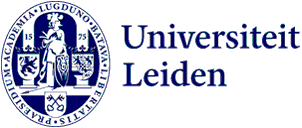
Symposium on technology and trust: ‘Think about privacy and security before introducing new systems’
From scanners in lecture halls to systems for working from home: the discussion about new technology is being held on various fronts. That is why the University wants to make more use of its in-house experts. At the Technology and Trust symposium at Leiden University on 2 February, researchers from different disciplines explained the implications of new digital systems. What are their recommendations?
‘Without digital systems for online lectures and meetings, the University would have come to a complete standstill during the pandemic,’ said Hester Bijl at the start of the symposium. They can offer a solution to problems but also lead to new concerns.’ The symposium was held because of the protest in December against the introduction of scanners in the lecture halls. These were installed last summer to count people: to measure how busy the buildings were during the pandemic and as an aid to timetable makers. The scanners have been switched off for the time being, until an external investigation clarifies how secure these are. The University Council was consulted about the introduction of the scanners, but information about them was not widely communicated.
Bart Custers, Professor of Law and Data Science, referred to the European legislation, the General Data Protection Regulation. ‘Under this privacy regulation, you have to announce well in advance what the benefit is of collecting data and specify the purpose you are going to use it for. That didn’t happen with the scanners.’
‘The use of data and digital technology is never neutral.’
More knowledge and awareness needed
The symposium, with over 80 online participants, met a significant need to discuss the matter and share different insights. For instance from a legal, psychological or societal perspective. Rector Magnificus Hester Bijl remarked: ‘In hindsight, we should have done it differently. More awareness and knowledge is needed about the necessity and consequences of this kind of equipment. This symposium is the start of the discussion.’ Marina Terkourafi, Professor of Sociolinguistics, remarked: ‘If data collection meets a lot of resistance, you have to think about whether it is necessary and whether other means would be better. The use of data and digital technology is never neutral.’
Political scientist Francesco Ragazzi, an active member of the University protest group ‘Unsee Us’, said: ‘Surveillance equipment is always defended by stating the benefits: efficiency, protection and security. But tools like these can be used to the detriment of fundamental rights such as privacy. Our movements can also be tracked through our LU-card and the use of wifi and this has not yet been discussed.’ A few of his recommendations: transparency, accountability and an ‘inclusive’ decision-making process.
Think about the architecture of technology
‘We have to think about privacy and protection much sooner, at the software development stage already,’ said Els de Busser, a lecturer in cybersecurity and governance. Bart Custers added: ‘The architecture of technology largely determines behaviour. So you should build in privacy. Limit questionnaires, for instance, and anonymise participants.’ Psychologist Roy de Kleijn, a robotics expert: ‘It’s all about trust. That’s the discussion we need to have. How do we know that organisations protect our data and won’t misuse it? And do we really need new technology or do we just want it?’
‘Do we really need new technology?’
Digital technology influences our behaviour, said Simone van der Hof, Professor of Law and Information Society. ‘Just look at a lecture hall with scanners. The suggestion that you are being watched has an impact on the teaching; students may become more cautious.’ She called for more attention to data technology in all the degree programmes. An interdisciplinary minor on data and artificial intelligence is already being developed.
Law lagging behind
Moderator Pieter Slaman, himself a historian, asked to what extent data law provides sufficient protection. Dutch and European legislation are lagging behind new technology, Data Protection Officer Ricardo Catalan emphasised. However, the University can develop additional, transparent rules to increase trust. Paul Wouters, Dean of the Faculty of Social and Behavioural Sciences, pointed to developments in society. ‘As a university, we are trying to adapt to the mass data-producing technology, like everywhere in society. That is a fundamental change. We have to resist companies like Google that have become so dominant and take back ownership of our data.’
‘It is difficult to choose systems that everyone is keen on.’
No simple solutions
Several speakers noted that new technology is too complex for simple solutions. Simone van der Hof: ‘There can be no such thing as one hundred per cent security and one hundred per cent privacy, and the same is true for full transparency.’ Joop van der Born, director of the ISSC, agreed: ‘It’s a struggle: we want to ensure security but also want to be transparent. But if we share all the information, we make ourselves vulnerable to cybercriminals.’ Ricardo Catalan: ‘Some people want to work completely open source whereas others don’t. It is difficult to choose systems that everyone is keen on.’
Empower the University Council and faculty councils
The speakers did agree that the decision-making process on new digital systems could be more inclusive. Pieter Slaman asked how we can do this with such a huge and diverse community. Many suggestions were made. Such as: using our academic values to develop a long-term vision for the introduction of new technology. Hold meetings about privacy and technology for students and staff. Provide more techno-expertise to the participation bodies, such as an expert panel. This will help empower and better equip the University Council and faculty councils. All the speakers agreed on one thing: this symposium was a good start.
Text: Linda van Putten
Photo above article: protest against scanners, in early December 2021
You can watch the symposium here.
Due to the selected cookie settings, we cannot show this video here.
Watch the video on the original website or